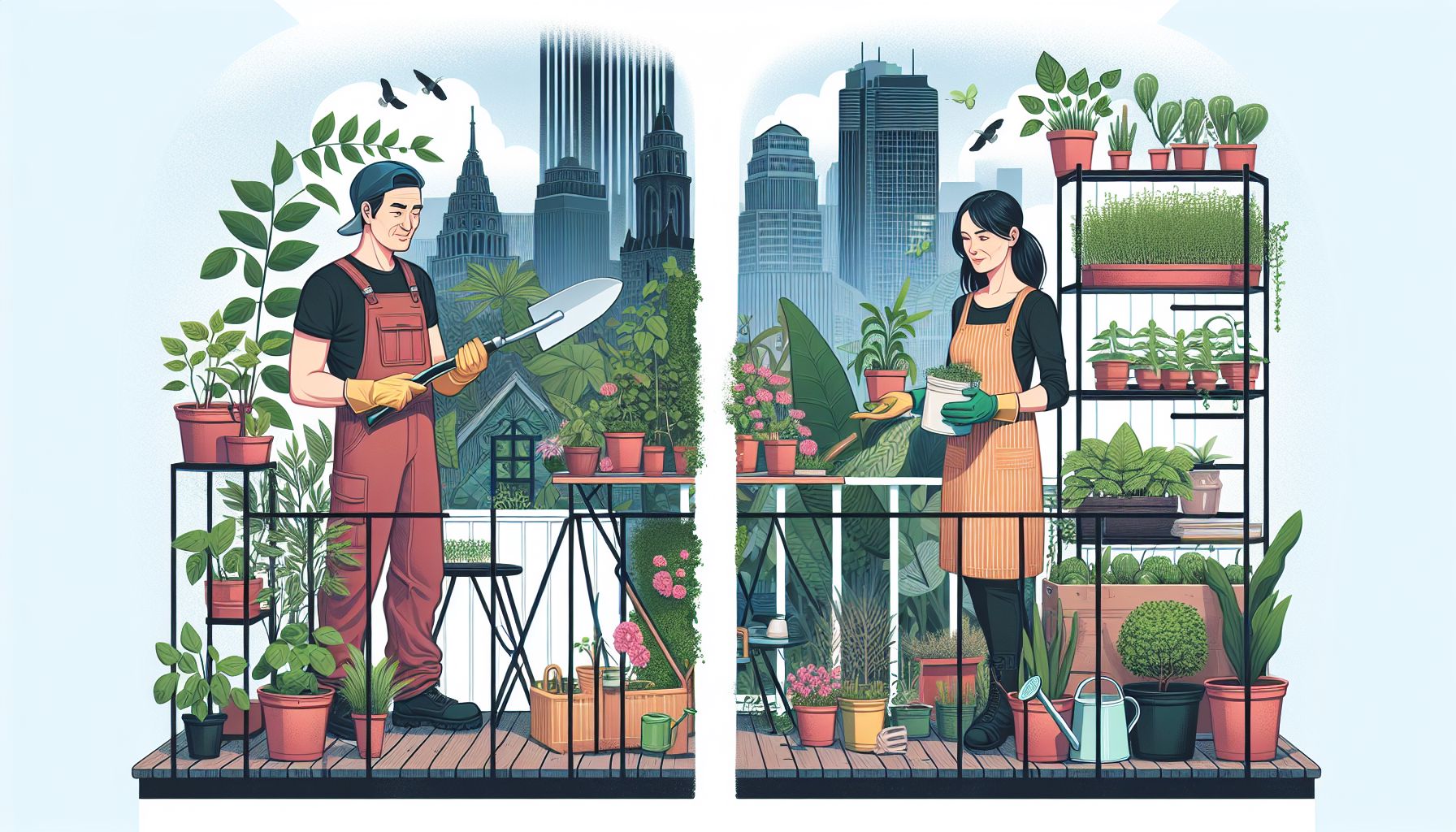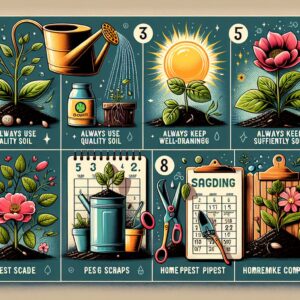Gardening is an activity that connects us with nature and provides a relaxing and therapeutic means of self-expression. For those who treat gardening more than just a pastime and for enthusiasts who engage in urban gardening despite limited space, here are some expert gardening tips to help you optimize your gardening strategies, increase your yield and transform your hobby into a rewarding professional experience.
The Art of Urban Gardening
One common misconception is the notion that successful gardening requires extensive space. This idea has made urban gardening a real trend, especially among city dwellers who wish to grow their own fresh and organic produce. So, if you’ve got big gardening ideas but limited space to execute them, fret not! With a few smart strategies, a small area can become a lush haven of vibrant, healthy plants.
-
Tower gardening is an urban gardening method that allows you to grow vertically instead of horizontally. This approach can accommodate a wide variety of plants, from leafy greens to tomatoes, even some root vegetables.
-
Balcony gardening is another ingenious way to maximize smaller spaces. Whether you’re growing flowers, herbs, or vegetables, balcony gardening allows you to utilize pots, hanging baskets, and window boxes.
-
Container gardening is one of the best methods to practice in an urban setting. It enables you to grow your favorite plants in pots, crates, baskets, or sacks while saving space and making the most out of your urban garden.
Tips for Professional Gardening
Professional gardening is a commitment. It requires an advanced level of gardening knowledge, skills and often a considerable amount of time spent outdoors. Here are compelling tips to elevate your professional gardening game and bring your skills to the next level.
-
Understand your plant’s needs: Not all plants are the same. They have unique requirements concerning light, water, soil type, and temperature. Stay ahead by researching each plant species and their specific needs.
-
Invest in good soil: Soil determines how well your plants will grow. Enhancing soil quality with organic matter such as compost and worm castings can significantly impact your plant’s growth and yield.
-
Mulching: This is a professional gardener’s secret weapon. Mulch helps maintain soil moisture, suppresses weed growth, and improves the overall health of the soil.
-
Regular Pruning: Pruning promotes healthy growth by eliminating dead or diseased parts of the plant. Be sure to use sharp, clean pruning tools to avoid stress and disease transmission to your plant.
-
Integrated Pest Management: Instead of resorting to chemical pesticides, opt for an integrated approach that combines biological, cultural, and chemical strategies to control pests. Implementing beneficial insects, crop rotation, and diversification are just a part of this approach.
Conclusion
Whether you are a professional gardener or an urban gardener, remember that gardening is a gradual process. It’s essential to keep learning and experimenting with different strategies to see what works best for you and your plants. Don’t be disheartened by initial failures. Use them as learning lessons and stepping stones towards greater success. Keep these gardening ideas in your mind, stay patient and persistent, and before you know it, you’ll have a flourishing garden that’s both productive and aesthetically pleasing.
Gardening can be a simple hobby or a professional endeavor, but regardless of why you do it, there’s always room for improvement. And who knows? With the right skills, creativity, and passion, your journey as a professional gardener may turn out to be more fulfilling and rewarding than you had ever imagined.




